What is the difference between MCB, MCCB, ELCB, and RCCB ?
An electrical circuit breaker is an automatic switching device that is installed for the safety of the electrical system. It protects an electrical circuit from electrical damages caused by conditions like overload, short circuits, earth leakage, etc.
During a fault condition, a circuit breaker operates by interrupting the current flow through the circuit. That is it acts as a switch that automatically OFF when any fault occurs and remains open until it is RESET by manually.
A circuit breaker can be also operated manually to open and close the circuit.
The circuit breakers are of different types based on voltage, operating mechanism, applications, etc. Here we are going to learn about the basic differences between MCB, MCCB, ELCB, and RCCB.
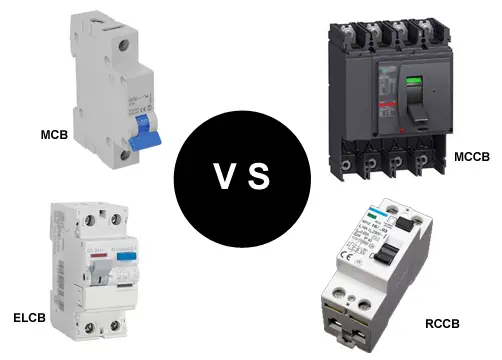
MCB (Miniature Circuit Breaker)
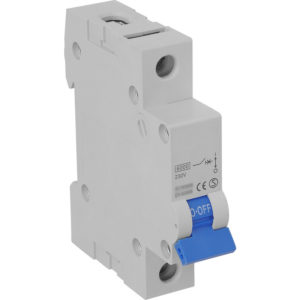 MCB is an electromechanical device that protects the electrical circuit from overcurrent resulted due to overload, short circuit, or anything which causes excessive current flow.
MCB is an electromechanical device that protects the electrical circuit from overcurrent resulted due to overload, short circuit, or anything which causes excessive current flow.
A miniature circuit breaker switches off by three mechanisms. One is manual through the operating knob and the other two are automatic tripping through thermal effect and electromagnetic effect.
For protection against overload, MCB has an operating mechanism using the bimetal strip. It operates when the circuit has a continuous overcurrent for a long time period of time which causes the bimetallic strip to deform due to the overheating. This deflection of the bimetallic strip causes the displacement of the mechanical latch which makes the arrangement to release the spring and makes the moving contact into open condition.
Where in the short circuit condition a sudden large amount of current flow through the Trip coil causes electromechanical displacement of the plunger. The plunger strikes the trip lever causes the release of the latch mechanism which opens the contacts.
In both ways, the MCB interrupts the current flow and prevents electrical damage.
Nowadays in most of the low voltage electrical systems, the fuses are replaced with MCB’s. Because unlike a fuse, MCB’s can reset simply in no time as simple as using a switch, where a fuse needs a replacement. Also Compared to fuse MCB’s are more sensitive and reliable.
Refer: MCB vs Fuse comparison
- MCB trips when a short circuit or overload occurs.
- Trip characteristics are not adjustable.
MCCB (Molded Case Circuit Breaker)
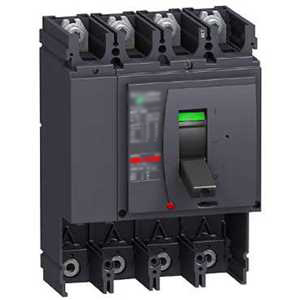 Molded Case Circuit Breaker is a circuit breaker and trip device assembled in a molded case. It also operates in case of overload and short circuit similar to an MCB. MCCB’s are commonly used for Industrial applications for high-power equipment.
Molded Case Circuit Breaker is a circuit breaker and trip device assembled in a molded case. It also operates in case of overload and short circuit similar to an MCB. MCCB’s are commonly used for Industrial applications for high-power equipment.
The MCB is rated under low ampere up to 100 amps and interrupting ratings below 18,000 amps. Whereas an MCCB has an adjustable trip characteristic with current ratings of low values such as 15A to higher values up to 2,500A and interrupting ratings range up to 200,000A.
- Trips on short circuit and overload.
- Trip current is adjustable.
ELCB (Earth leakage circuit breaker)
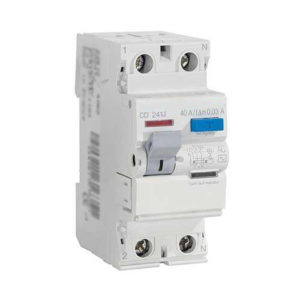 Earth leakage circuit breaker operates when it detects the presence of leakage current in the earth wire.
Earth leakage circuit breaker operates when it detects the presence of leakage current in the earth wire.
In an ELCB circuit, the relay coil connects between earth line coming from the electrical wiring and the earth directly. So if any leakage is occurred due to insulation failure or the earth line comes in contact with the charged phase a potential difference build across the tripping coil. And when the potential enough to energize the coil is produced, the ELCB mechanism trips and opens the circuit.
The metallic part or enclosure of the devices should have proper earthing in order to operate the ELCB.
ELCB’s are no longer used in new electrical systems. An ELCB cannot detect any fault condition where the current is returning to earth by an alternate path. It does not operate in conditions like an electric shock to a person (current flow via a person to the ground) or leakage through non-earthed metallic parts, etc.
- ELCB trips if any leakage occurs from the live line to the earth wire.
RCCB (Residual current circuit breaker)
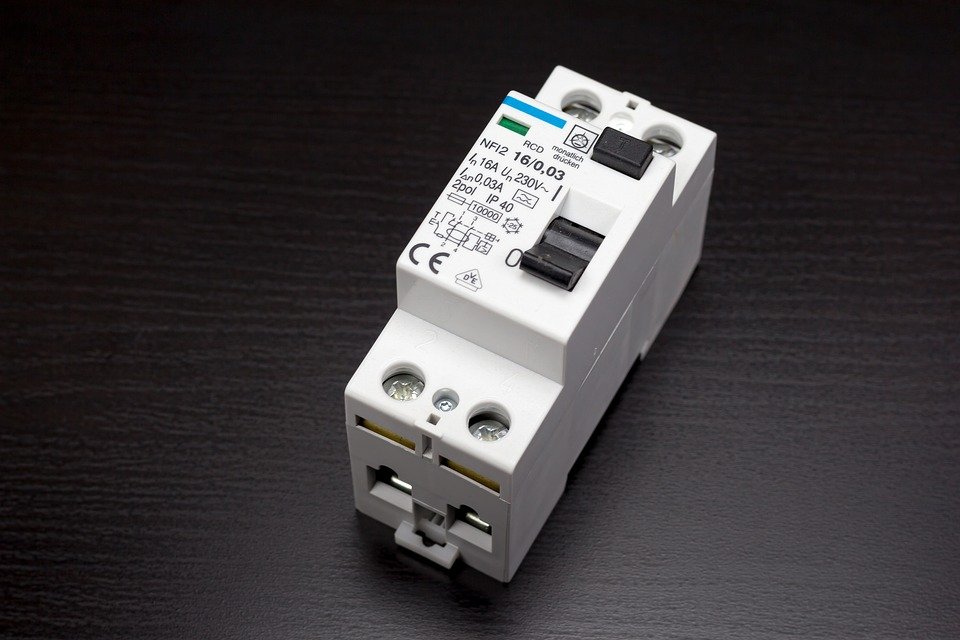 RCCB is a type of Residual current device operated by detecting the current imbalance in the incoming and returning current.
RCCB is a type of Residual current device operated by detecting the current imbalance in the incoming and returning current.
The RCCB can operate for the same fault conditions where ELCB operates. But its method of operation or fault detection is entirely different from that of ELCB.
As mentioned above, the ELCB can’t sense the current flow through an alternate path directly to the earth. Because it needs a potential difference across the coil which is connected between the incoming earth line and earth. So any leakage other than through the earth line cannot be sensed by the ELCB.
But an RCCB can sense any such fault conditions. When the ELCB operates for a supply leakage to the earth line, the RCCB sense for an imbalance in the phase and Neutral lines. RCCB operates when there is an inequality in lines.
An RCCB consists of a toroidal winding which is arranged in such a way that the magnetic field produced from the phase line and neutral line will oppose each other. In normal conditions, the current through the phase wire will be equal to the neutral wire as it is just the return path. Hence, in such a condition the field cancels out each other and the resultant MMF (Magneto-Motive Force) becomes zero. When any leakage occurs the phase and neutral current become unequal. Because the neutral current will be less than that of the phase current as some amount of current flows through an alternate path. It generates an MMF that can energize the sensing coils and it instantly trips the RCCB mechanism to isolate the circuit.
An RCCB is an essential device for the safety of humans and electrical systems.
- RCCB trips when the phase and neutral lines are not balanced.
Very good article
Very cute article
More lessons
Nyc article
thanks
It’s good for people